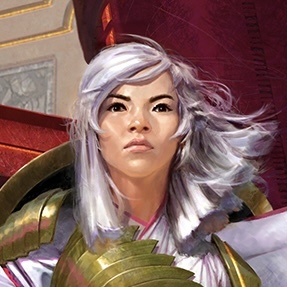Genuinely curious. I keep thinking “it can’t get much worse without some kind of mass uprising” but the ability of the general population of Western states to just soak up suffering seems endless. Do you think we will actually see mass movements in the next decade or two? Or just slowly lurch into a void of ever-shittier liberalism?
By the West I mean like. Western Europe and the Anglosphere I guess.


I once wrote a very silly thing that I called something like "global revolution in one year", where, as the title would suggest, in the span of a mere 365 days the entire capitalist system collapsed across the entire world. Trying to imagine how something could go from its present state to a completely opposite state in the span of a year or a decade can be a great way to develop a feeling of optimism and control, as well as spontaneous creativity, that makes someone a good revolutionary.
Obviously I don't actually believe that we will witness the complete collapse of capitalism across the entire globe and the establishment of die sozialistische Weltrepublik in the span of only 365 days. It's probably going to happen piece by piece over the course of, as you say, 20 years.
Incidentally, the last bourgeois republic to fall was Australia, more specifically the Whadjuk territory in and around Perth.
There are some particular things that I want to highlight:
I also recently wrote a different silly thing where in the span of a year or two, the region where I live (I'm talking an area with ca. 20,000 people, 200 km2) would experience a socialist insurgency, the building of dual power, and would eventually declare independence outright. Once again, I obviously don't believe that this will actually happen, but the premise of that story is basically that one fairly minor grievance can quickly escalate into many very major grievances, if neither side wishes to give in, and it ultimately took only a handful of people making a few easy and rational decisions to cause that to happen.
And it definitely felt different to imagine "Western revolution" not as this grand abstract thing, but imagining how it might play out in these hyper-specific locations that I'm very intimately familiar with, places that I've seen hundreds or thousands of times, and tracing how average people's grievances and interests and how far they'll go to address them shift bit by bit through experience.
Edit: Why do I always confuse the words "insurrection" and "insurgency"? I need to get better sleep.
where can I read the stories you wrote?
The notes app on my phone
Edit: Well, "revolution in one year" was written in the notes app on my phone, the thing about my home region declaring independence was written in LibreOffice on my laptop. The point in any case is that these things are kind of embarrassing to share, and in the case of the story about my home region, maybe a bit too revealing of where I live, too.
fair enough
I found a YouTube link in your comment. Here are links to the same video on alternative frontends that protect your privacy: